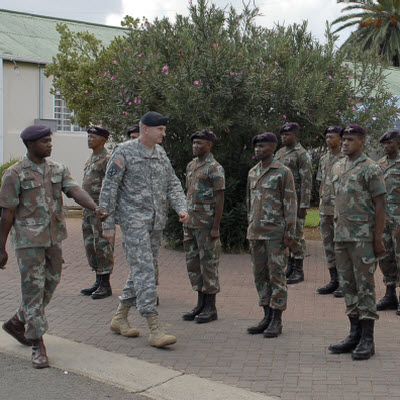There are no products in your shopping cart.
| 0 Items | £0.00 |

 NIGERIAN Army commanders have given all their troops one year to become proficient in the nation's three major languages as part of a plan to get the military to become closer to the populace.
NIGERIAN Army commanders have given all their troops one year to become proficient in the nation's three major languages as part of a plan to get the military to become closer to the populace.
Over the last year, the Nigerian Army has stepped up its operations across the country in what commanders say is a drive to ensure it is ready for any eventuality. This has, however, led to frequent clashes with local communities and in a bid to ease such tensions, Nigerian Army commanders have asked their troops to become proficient in Yoruba, Igbo and Hausa.
Nigerian Army spokesman Brigadier Sani Usman, said: “Invariably, by December 2018, all Nigerian Army personnel are expected to learn the three major Nigerian languages. The standard of proficiency to be attained is the basic level and certificated proficiency level will attract a language allowance."
According to Brigadier Usman, the ability to speak the three major languages would be an added advantage to those applying for recruitment or commissioning into the army. He explained that before now, the army officially encouraged the learning of French, Arabic, Spanish, Portuguese and Swahili, adding that French language was an assessed subject in some career courses and examinations for personnel.
Brigadier Usman said that the language policy was newly-introduced as the study of foreign and local languages was a world-wide practice among armies, in which officers and soldiers were encouraged to be multi-lingual. He noted that English remained the official language in the army, while Yoruba, Igbo and Hausa languages could be used during civil military cooperation activities or interrogation.
“The policy will foster espirit-de-corps and better communication with the populace to enhance information gathering, civil-military relations, increase understanding between militaries when operating abroad and assist officers and soldiers to perform their duties professionally," Brigadier Usman added.